Staff Research Interests
Loading People
We couldn't find anybody who matched your criteria
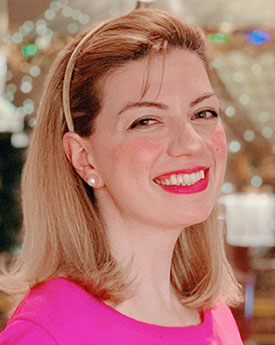
Dr Rahaf Aldoughli
I am Dr. Rahaf Aldoughli, a Lecturer in Middle East and North African studies at Lancaster University. Prestigious organizations, including Women in International Security (WIIS) in Washington, DC, the Kroc Institute Fellowship, XCEPT, and the Arab Center for Graduate Studies, have recognized my contributions to the field with awards and grants, affirming my standing as a leading scholar in Middle Eastern studies.
My research interests span nationalism, sectarianism, and political attitudes within authoritarian contexts, adopting an interdisciplinary approach. My book, "Romancing Masculinity in Baathist Syria: Gender, Ideology, and Identity," with Manchester University Press, investigates gender and identity formation under Baathist rule. Additionally, I am finalizing a manuscript on sect(ism) in Syria, scheduled for publication by IB Tauris in 2024, which aims to shed new light on the complexities of identity making/remaking in times of conflict.
My latest project focuses on dissecting the multifaceted drivers of violent behavior in the Syrian Civil War through a micro-level analysis. I aim to capture firsthand narratives from Syrian fighters, seeking to understand their motivations and experiences. This research is not just an academic pursuit; it's a quest to uncover the layers of political behavior in authoritarian regimes and the nuanced factors that drive conflict in the region.
Through my work, I strive to contribute to the academic discourse on conflict dynamics and offer insights that could guide interventions in the Middle East and beyond. My goal is to illuminate the intricacies of conflict and explore avenues for peace and resolution.

Dr Zoe Alker
I joined the History department in Lancaster University in 2022, where I research and teach the digital history of crime, justice and punishment from eighteenth to twentieth century Britain. Over the past decade, my work has established new interdisciplinary approaches that combine history, osteoarchaeology, criminology and digital humanities to advance histories of crime, justice and punishment. Central to this work has been developing innovative ways of enhancing public engagement with digital history by creating open access digital archives that give the public direct and searchable access to some 35 billion words of primary sources evidencing the social history of modern Britain [Digital Panopticon, Convict Tattoos, Skin and Bone].
Recently, I was Principal Investigator on a British Academy/ Leverhulme Small Grant for ‘Skin and Bone’ which used data mining and data visualisations to chart the embodied experiences of injury, accidents, and interpersonal violence of 173,366 Londoners during the Industrial Revolution, 1760-1901. By merging ten disparate datasets from criminal, hospital and osteoarchaeological records, it demonstrated when, how and in what ways the physical body interacted with changing social identities and developed a new and 360-degree approach to the historical body during a crucial period of social, industrial and environmental change. These methods were initially developed through a British Academy-funded project, Analysing Convict Tattoos through Data Mining and Visualisations (2019), with Professor Robert Shoemaker (Sheffield), which extracted 76,000 descriptions of tattooed convicts and used data mining and visualisations to identify the cultural significance of tattooing in British society, 1791-1925. These methods have not only advanced histories of modern Britain, but are translatable for use in complex, multivariate data across various humanities and social sciences disciplines.
I’m currently developing a project with Dr Richard Ward (Exeter) which uses machine learning and data visualisation to examine deaths in prison custody, 1760-1925, and I'm writing a monograph on the history of femicide, violence and misogyny in Victorian England. I am Chief Editor of the SOLON Explorations in Crime and Criminal Justice book series. I enjoy writing and speaking for TV, radio and print, and my work has received coverage in the BBC, The Times, Independent, Observer, CNN and the Smithsonian. I also enjoy working and publishing with activist organisations and policy think tanks including Howard League for Penal Reform.

Dr Lucia Ardovini
Lucia is a Lecturer in International Relations and Programme Lead for IR. She is also the Director of the Richardson Institute and a Research Fellow at the Foreign Policy Centre. Lucia is a founding member of the "Tackling Transnational Repression in the UK" Working Group and the "Tackling Transnational Repression" European Coalition.
Her works spans across academia and policy, and focuses on the intersection of transnational diaspora activism and transnational repression. She is particularly interested in exploring host states' policy responses to TRN, and actively works with the UK Parliament and the EU Parliament on informing institutional strategies to tackle this issue.

Xue Bai
Xue Bai is a postgraduate researcher in the Department of Politics, Philosophy and Religion at Lancaster University and a Doctoral Fellow at the Lancaster University China Centre. Her research investigates the nature of China's political consumerism, focusing on historical roots and the evolution of political consumerism, the motivations of political consumers, and the relationship between political consumerism and conventional political participation in an authoritarian context.
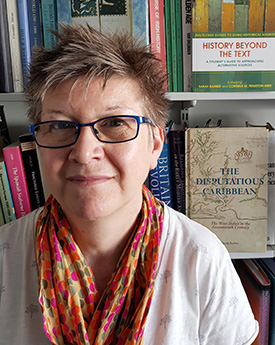
Professor Sarah Barber
Largely focusing on the seventeenth century, but stretching from 1500 to the present, my research concerns are with the nature of community, its formation and incorporation within or exclusion from community; with the nature of historical knowledge, and the role of the historian. This has been applied to the fields of British and Irish, Scandinavian, Dutch and Spanish European communities; those of the Eastern seaboard of the Americas; and to the exploration of non-traditional source materials to recover historical knowledge.

Dr Brian Black
I received my MA and PhD in the Study of Religions from the School of Oriental and African Studies (SOAS), University of London. I teach courses on Hinduism and Buddhism, as well as on comparative philosophy. I am author of the books:
- The Character of the Self in Ancient India: Priests, Kings, and Women in the Early Upaniṣads
- In Dialogue with the Mahābhārata
I am co-editor of the following books:
- Gender and Narrative in the Mahābhārata
- Confronting Secularism in Europe and India: Legitimacy and Disenchantment in Contemporary Times
- Dialogue in Early South Asian Religions: Hindu, Buddhist, and Jain Traditions
- In Dialogue with Classical Indian Traditions: Encounter, Transformation, and Interpretation
I am co-editor (with Laurie Patton and Chakravarthi Ram-Prasad) of the book series: Dialogues in South Asian Traditions: Religion, Philosophy, Literature and History
My primary areas of research are:
- Hinduism
- Buddhism
- Indian Philosophy
- Indian Ethics
- Comparative Philosophy
- Multiculturalism, social justice, and secularism in South Asia
- Gender in Indian religion and philosophy
- Dialogue and narrative in the textual sources of South Asian religions
Current Projects
Currently I am working on a series of articles on the relationship between philosophy and narrative in ancient Indian sources.

Dr Sam Clark
I am a philosopher interested in the self; in good and bad lives it might lead (aka welfare, well-being); in its reflexive powers and practices; in the roles of experience, reflection, and institutions in its development and success; and in how to do philosophy so as to advance our understanding of these issues.
These interests have lead me to think, write, and teach about capitalism and anarchism; utopias, dialogues, and autobiographies; pleasure, self-discovery, and self-realization; self-knowledge, self-interpretation, and self-command; the lives and experiences of monks, soldiers, hermits, and solo travellers; and the transformative effects of work and war.
My recent work has been philosophy of and through autobiography, and as part of it I have published articles in journals including Inquiry, Ratio, The Journal of Applied Philosophy, and Ethical Theory and Moral Practice, and a book, Good Lives (Oxford University Press 2021).
I am currently writing a book about the relations between philosophies of the self and philosophies of welfare, making use of speculative fiction about alien and artificial selves.

Professor Rachel Cooper
My research training is in History and Philosophy of Science and I currently work mainly on topics in the philosophy of medicine, particularly philosophy of psychiatry. My recent research has focussed on conceptual issues related to the classification of psychopathology, and on concepts of health and disorder. Much of my research integrates work in the history of psychiatry with philosophy of science, and I also aim to engage with the live concerns of researchers in mental health. As such, I have written for a wide range of audiences, and publish in journals across philosophy, history of psychiatry, psychiatry and clinical psychology.

Megan Crossley
Megan Crossley's research interests are migration, refugees and the asylum system with a focus on gender, belonging, community-making and resistance. She is in the second year of her PhD research which considers how people seeking asylum and refugees experience community, place and resistance in North-West England using photovoice methods.

Dr Benjamin Dalton
My research explores dialogues between French Studies and the Medical Humanities. In particular, I look at how contemporary French philosophy and cultural production approach innovations in biomedical science, and how biomedical science also inspires innovations within philosophy and cultural production. I have published on the philosophy of Catherine Malabou, whose interdisciplinary between philosophy and (neuro)science explores how living beings are "plastic" and transform throughout life. My new research looks at representations of the hospital in contemporary French philosophy.
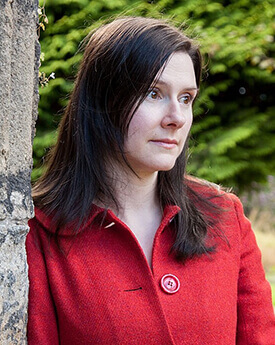
Professor Fiona Edmonds
I study medieval Britain, Ireland and Brittany, with interests ranging from the sixth century to the twelfth. My research focuses on maritime connections and now-lost kingdoms. Particular areas of interest are the Irish Sea region in the Viking Age; central Britain (northern England and southern Scotland) prior to the Anglo-Scottish border; and connections between northern Britain and Wales. My monograph Gaelic Influence in the Northumbrian Kingdom: The Golden Age and the Viking Age won the Frank Watson Book Prize, 2021. I have been involved in funded projects on Furness Abbey’s links across the Irish Sea and contacts between Britain and Brittany. I am interested in interdisciplinary work, for example combining historical and linguistic evidence through the study of names. From 2016-24 I was the Director of the Regional Heritage Centre, which received an Educate North Award for Community Engagement in 2023. I am committed to Equality, Diversity and Inclusion in Higher Education, including the department's Athena Swan Bronze award (2021). I have been awarded a British Academy mid-career fellowship for the academic year 2024/5.

Dr Mustafa Elmenshawi
I analyse politics as puzzles. My current puzzle—the First Ladies of Authoritarianism project—examines how the wives of leaders in countries such as Egypt, Syria, Jordan, Tunisia, Argentina, the Philippines, China, and Zimbabwe have contributed to, or undermined, the durability of authoritarian regimes. It also compares the roles, powers, and identities of first ladies in both democratic and authoritarian systems.
This project has produced publications in leading journals, including the British Journal of Middle Eastern Studies (where my article ranked first on the journal’s “Most Read” list for the year), the Journal of Middle East Women’s Studies (JMEWS), Women’s Studies International Forum, and DIGEST. Forthcoming outputs include an article under review with Third World Quarterly and a book manuscript, First Ladies in Authoritarian States: Roles, Powers and Identities. I have received £60,000 in research grants and have presented this work at Durham University (UK), the University of Westminster (UK), the Doha Institute (Qatar), Newcastle University (UK), and Lund University (Sweden).
My second puzzle is sectarianism—an ever-elusive concept that becomes harder to define the more it is studied. This project seeks to develop a more inclusive and comprehensive definition, adopting a bottom-up approach that introduces concepts such as micro-sectarianism and intra-sectarianism. I have published related work in Politics, Third World Quarterly, Religions, DIGEST, and Orient, with further outputs forthcoming, including a book manuscript with a leading academic press. Collaborations with colleagues have secured $850,000 from the Carnegie Corporation and $160,000 from the Luce Foundation as part of the SEPAD initiative. I have presented this research at the University of St Andrews and the University of Leeds.
This work earned me the Dean’s Award in 2022, with the panel commending my “very strong research achievements with an exemplary record of publications.”
My research is characterised by strong internal and external engagement. I have delivered policy-focused talks at the Foreign Policy Centre, briefing academics, researchers, and policymakers on how to understand and address sectarianism. I write opinion pieces for Al Jazeera and The Conversation, and I have appeared on Al Jazeera, the BBC, and Sky News. I co-author publications with colleagues within my department (e.g., Professor Simon Mabon) and internationally, including a joint report with 15 scholars from ten countries. I have co-organised three major conferences, one of which attracted around 300 participants from across the globe.
Within the school, I collaborate with colleagues on core teaching modules such as Politics of the Modern World (delivered with a six-member team) and contribute to the design and delivery of modules across the faculty/school that develop students’ skills and enhance their employability.
In teaching, I was shortlisted for a Teaching Excellence Award. My background as a BBC correspondent covering major political events worldwide enriches my teaching by integrating experiential and reflective learning. I have also worked as a press officer and researcher at the European Commission and as a consultant with firms such as Albany Associates, combining theory with practical insights.
I take a cross-disciplinary approach to understanding politics—drawing on gender studies, psychology, and sociology—and collaborate widely across these fields, as reflected in my publications and research projects.
I have won the prestigious Lorenzo Natali Prize and was shortlisted for the Kari Blackburn Award. I was also awarded the Chevening Scholarship to study for an MA at SOAS.
I have three PhD students:
Rowan Fitton, "Winning Seats or Taking to the Streets: Can differences in political organisation explain the relative success of de-sectarianisation movements?"
Muhannad Al Mudith: Dynamics of social and political changes in the Arab World
Brilliant Khairunnisa, Public Diplomcy and Image-Making in Indonesia's Foreign Policy
I welcome proposals that relate to topics on sectarianism, public diplomacy, social/political movements and political communication.

Professor Allyson Fiddler
My research interests encompass contemporary German-speaking culture in a number of forms - literary, filmic, and more broadly socio-political. I'm very interested in the Nobel-prize-winning, Austrian author Elfriede Jelinek and have published many articles and chapters on her work as well as one of the first monographs on her oeuvre. My recent work has focused on issues concerning literary and cultural protest and resistance against the extreme right in present-day Austria.

Professor Karolina Follis
I am a political anthropologist interested in borders, citizenship and non-citizenship, human rights and new security technologies. I study the politics of borders in Europe, in particular the contestations over security, entitlements to public services and the rights of migrants and asylum seekers. My 2020-21 project, the Wellcome Trust-funded Doctors within Borders was an international networking initative to bring together researchers, activists and healthcare professionals interested in the healtcare entitlements of migrants, asylum seekers and other patients who have unsettled legal or social status. Building on the outcomes of the project I am now developing further reserach on healthcare for people on the move. My other recent projects include work on rejecting refugees in Poland and on border surveillance on the Mediterranean Sea. I developed my initial conceptualization of borders in my ethnography Building Fortress Europe. The Polish-Ukrainian Frontier published by University of Pennsylvania Press in 2012. It was based ethnographic fieldwork in Poland and Ukraine to understand the human consequences of the transformation of the border between those two countries into an external border of the European Union. I remain interested in Eastern and Central European politics, particularly in the debates around liberal democracy, illiberalism, border and immigration politics, EU, misinformation and conspiracy theories, especially where they concern immigration.

John Foster
I don’t really have "research interests", leaving those to scientists, but I do sometimes think and (less frequently) write things. My books and articles have explored the conceptual and socio-political assumptions of environmental economics and the idea of natural capital. I have also written about sustainability and education, particularly the relations between scientific, social-scientific and humanities modes of sustainable education. My book The Sustainability Mirage (Earthscan, 2008) offered a critique of the currently dominant sustainability paradigm. More recently, After Sustainability (Earthscan from Routledge, 2015) explores what we might do, and in particular how we might go on hoping, once we stop trying to pretend that "sustainable development" policies are going to save us from major climate-related chaos and breakdown. I am now trying to think in more detail about what the politics of retrieval under those conditions might look like.

Professor Basil Germond
I am a seapower and maritime security expert. My research is cross-disciplinary and aims at understanding human, social and political interactions at, from, within, and with the sea. I employ mixed methods and approaches, ranging from corpus linguistics to cumulative impact assessment to the application of IR theories. My specific research interests cover the concept of seapower, maritime security, maritime strategy and geopolitics, the maritime/naval dimension of UK Defence, the evolving maritime threats "seascape", ocean governance, climate change dimensions in maritime security, and frontiers in IR. I have developed cross-disciplinary research within social sciences (e.g. linguistics, human geography) and beyond, notably with marine science and STEM.
The journals in which my research has recently been published reflect my cross-disciplinary approach to ocean studies, e.g., Territory, Politics, Governance, The Australian Naval Review, Climatic Change, The Geographical Journal, Journal of Environmental Studies and Sciences, Marine Policy, Science of the Total Environment, European Foreign Affairs Review, Global Policy.
My research engages with, and informs, public policy stakeholders (see for example the oral evidence I gave to Parliament in May 2022 on questions of maritime security, the oral evidence I gave in May 2023 on Arctic geopolitics and polar research, the oral evidence I gave in February 2024 on freedom of navigation, as well as the evidence I submitted in 2021 to the Defence Committee of the House of Commons on the Navy's future, and those I co-submitted to the House of Lords regarding UNCLOS). My research recently informed the Defence Committee's report on "The Navy: purpose and procurement" as well as its March 2022 report on "The use of the military to counter migrant crossings". In 2023, my evidence on the geopolitics of the High North were cited/quotes 11 times in the Scottish Affairs Committee's report on "Defence in Scotland". In 2021, I informed the Department for Transport and the EU Council on the climate change-maritime security nexus (click here to access the underlying research).
My research also engages with the wider public (see for example the list of articles I wrote in The Conversation, my September 2023 commentary about Ports as sites for security for Marine Log, and my November 2021 article for The National Interest on Global Britain and Seapower). I have recently written on the maritime and naval dimension of the Ukraine war (see for example my article in the Conversation as well as my TV interviews here and there) as well as on UK Defence (see my recent webinar on the maritime dimension of UK Defence). I have frequently contributed to engaging the wider public with questions of international security via the Conversation, of which Lancaster University is a founding partner. I have featured, among others, on BBC News, BBC Radio, NBC, RTE, France 24, Businees Insider and the Economist. I have also contributed to raising awarness of the importance of the sea in the local community (e.g. photo exhibition and public talk I organised in Morecambe funded by the ESRC Festival of Social Science).
I am a member of the ESRC Centre for Corpus Approaches to Social Science (CASS) with projects on maritime security narratives as well as the representation of the sea in collective imaginaries, of Security Lancaster, of which I am the Co-Director, and of the Centre for War and Diplomacy (CWD). My research and engagement contribute to the University's interdisciplinary initiative in Security and Protection Science.

Dr Celine Germond-Duret
My research interests include the international relations of the environment, global development, and North-South relations. My specific expertise covers marine policy and blue economy, international climate politics and global inequalities, indigenous peoples, as well as discourse analysis. My approach is framed within deconstructive and postcolonial approaches.

Professor Robert Geyer
My research interests have evolved in several directions. My main focus is on complexity theory and public policy. My recent book publications, including co-authored and co-edited books, are Handbook on Complexity and Public Policy, 2015; Complexity and Public Policy, 2010; Complexity, Science and Society, 2007 and Riding the Diabetes Rollercoaster, 2007. I have also written various articles in this field and have featured in six short films:
Introduction to the film series: http://www.youtube.com/watch?v=BO9lbEPWbZoComplexity and public policy: http://www.youtube.com/watch?v=-wz6RIHu83kMoving from complexity: http://www.youtube.com/watch?v=5Zz2w5zRYjsComplexity and the Stacey Diagram: http://www.youtube.com/watch?v=10sTkUlylGI Complexity and health an interview with Dr Samir Rihani http://www.youtube.com/watch?v=gyuVDo1DmBIComplexity and social policy an interview with Professor Eileen Munro, author of the influential Munro Review of Child Protection: http://www.youtube.com/watch?v=n3n9cWLuGXg
My other core area of research is in EU social and health policy with a particular emphasis on drug advertising policy. My key publications include a co-authored book, Integrating UK and European Social Policy, 2005 and single authored books Exploring European Social Policy, 2000 and The Uncertain Union, 1997 and a number of related articles. My other areas of interest are in international political economy, Scandinavian social democracy, European politics in general.

Dr Cornelia Gräbner
Cornelia's research focuses on poetry in performance, committed writing, and cultural imaginaries of acquiescence and stories of critical hope.
She explores the interplay of emancipation and experimentality in performance poetry, engages with committed writing as a practice that takes us beyond identification or 'othering', picks apart cultural imaginaries of acquiescence and counters these with narratives of critical hope. Her research includes Europe and the Spanish-speaking Americas, and literatures in Spanish, English, and German.
Cornelia's research draws on the methodologies of literary and cultural analysis. She has been involved in several international research projects on contemporary poetry.

Dr Delphine Grass
My research brings together translation studies, environmental humanities, digital humanities and ecosemiotics to examine translation as a site of biopolitical and ecological negotiation. I currently lead the AHRC BRAID-funded UK/US project Animals in Translation: AI, Ethics, and the Future of Interspecies Dialogue, which examines AI animal translation technologies through translation studies' ethical and creative frameworks. Working with an interdisciplinary and international team of co-investigators at Lancaster University and NYU, the project asks what it means - ethically, epistemologically, and politically - to use AI to mediate communication across species. In my work I am particularly interested in creative-critical and intermedial practices around translation, the relationship between translation and the arts, and in translation as a space for thinking transformatively about international relations in multispecies environmental contexts. My interest in epistemological diversity and ecosemiotics is tied to my work on minority languages such as Alsatian as well as my interest in the representation of more-than-human agencies across languages and cultures.
My most recent past research project in this area, 'Translation as Creative Critical Practice' (AHRC/MEITS), researched the ways in which translation can stimulate creative approaches to scholarship and to the reading and interpretation of texts across media. I have recently written a book entitled Translation as Creative-Critical Practice (Cambridge University Press, 2023) which explores the separation between practice and theory in translation studies through my analysis of creative-critical translation experiments. Focusing on contemporary literary and artistic engagements with translation such as the autotheoretical translation memoir, performative translations and 'transtopian' literary and visual art works, my book argues for a renewed engagement with translation studies from the point of view of translation as artistic and practice-based research capable of reframing social and geographical relations. Exploring examples of translation as both a norm-breaking activity in the works of Kate Briggs, Ayesha Manazir Siddiqi, Noémie Grunenwald, Anne Carson, Charles Bernstein, Chantal Wright or Slavs and Tatars to name a few, this book prompts readers to reconsider translation as a world-making activity in its own right.
Some reviews:
'The present volume is likely to be influential: Grass’s terms and definitions are useful, incisive, and intuitive (a combination rarely achieved in cutting-edge scholarship!), and her readings of fascinating work by translators from Anne Carson to Sophie Lewis to Chantal Wright are models of analytical practice in their own right.’ Christopher Friker in French Studies.
‘This is a vital critique of translation theory, and the opening of a new chapter in translation studies: a debate around “weak” or “tender” theory of translation. What an exciting moment for the discipline.’ Kasia Szymanska in Babel.
‘Grass challenges the traditional postulates of the field of translation studies, aiming to inspire renewed activity in translation as a field of political and theoretical engagement through practice. One of the most inspiring ideas that she offers is that it is possible to view translation failure as a site of cultural production and resistance.’ Marijana Javornik Čubrić in The Linguist.
I am also collaborating with Dr. Lily Robert-Foley (University of Montpellier III) on two further projects in this area of research. One is a monograph collective monograph entitled Unending Translation: Creative-Critical Experiments in Translation and Life Writing (UCL Press, forthcoming). The other is a special of issue of Life Writing (Routledge) entitled ‘The Translation Memoir’, published in 2024. I am currently working on a monograph entiteld Planetary Translation: Creative Experiments in Eco-cosmopolitan Futures (under contract with Routledge).
Another aspect of my research into contemporary creative practices focuses on the relationship between literature, art and political philosophy. I have written and published works on Michel Houellebecq, French politics, writing technologies and posthumanism. In the field of French and francophone art practices, I have also published work on the cultural and artistic history of the Alsace and Lorraine borderland and the relationship between Modernism and national indifference more generally. I am also a published poet, creative-critical writer and poetry translator.

Professor Ian Gregory
I work in Digital Humanities and am particularly interested in using Geographical Information Systems (GIS) with texts as well as the more traditional quantitative sources. I have used these approaches to study a range of topics from historical demography to Lake District literature. This research has been the subject of a number of major projects including the European Research Council funded Spatial Humanities: Texts, GIS, Places, the Leverhulme Trust funded Geospatial Innovation in the Digital Humanities and, most recently, the ESRC/NSF Funded Space Time Narratives project. For much more on my research see my personal website.

Meredith Guthrie
My research explores how royal authority was delegated and expressed during periods of child kingship. My doctoral thesis examined the minority government of Richard II and how the political community met the needs of the realm whilst the king was still a child.

Dr Julie Hearn
Julie has over 1,700 citations for her work, the second highest in Politics at Lancaster University. Her research trajectory has evolved in five directions: the global political economy of civil society in African countries; self-organisation and the labour movement in Argentina; trade union mobilization among low paid Latin American migrant workers in London; Ecuador's postneoliberal development model; and the 'NGOization' of the Syrian Revolution.
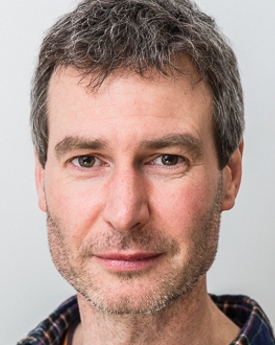
Dr Derek Hird
My research principally concerns gender and class in Chinese/Sinophone populations, with a particular focus on middle-class masculinities. I have also published on happiness in China. My most recent China-focused project looks at Chinese male beauty vlogging and makeup for men. More widely, I have also developed a research interest in critical pedagogy in modern languages and the future of languages and cultures as a sector, particularly involving its interdisciplinary interactions with STEM disciplines. I often approach topics from a wide-ranging cultural studies perspective, covering discourse and practice. Ethnographic, narrative and critical discourse methodologies frequently inform my data gathering and analysis.

Dr Sarah Hitchen
I'm a lecturer in Philosophy with a background in War Studies, Security Studies, Law, and Philosophy having studied, researched, and taught across all of these areas. My Philosophical interests primarily lie in the philosophy of war and conflict, military ethics, Ordinary Language Philosophy, analytic jurisprudence, and the philosophy of art and aesthetics, with occaisional forays into the linguistic elements of philosophy of science.
My main research focus recently has been on the centrality of the combatant experience to the study of war, military ethics and politics, particularly in the context of modern warfare and insurgency fighting. I am also interested in the moral and political aspects of public acts of rememberance in communities where tensions remain - particularly the history and ongoing discussion of official commemorations in the Republic of Ireland.
I'm also interested in the interaction of the practical and the more abstract in particular the relations between; craft, technique, and creativity, character and action, the ideal(ised) and the real(ised) which run through the arts and the professions of arms.

Professor Michael Hughes
Michael Hughes is a historian of nineteenth and twentieth century Russia, originally focusing on the development of Russian conservative thought from 1815 down to the 1917 Revolution (particularly thinkers within the Slavophile tradition). His more recent work has explored the history of Anglo-Russian relations, seeking to place formal diplomatic relations in the context of wider cultural exchange, while his most recent research project explored the development of transnational revolutionary networks in the late 19th and early 20th centuries. Hughes also has a long-standing interest in the role of religion in international politics.
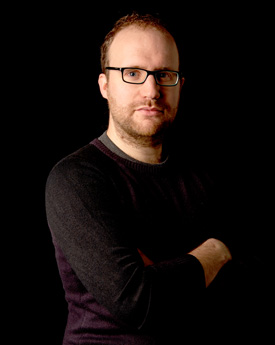
Dr Mark Hurst
My research focuses predominantly on human rights organisations and activists during the Cold War, and more broadly in the history of human rights, dissent, and political activism, especially the Soviet Union and post-Soviet Russia. Alongside this, I have wide research interests in contemporary British history, non-governmental organisations (NGOs), the history of comedy, 'soft power', and the history of sport (especially cycling).
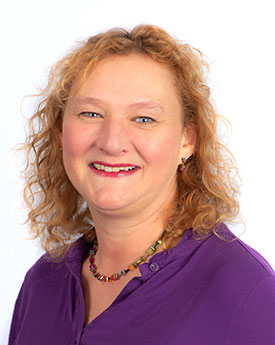
Dr Jenni Hyde
I work mainly on Tudor and Stuart history, and in particular, sixteenth-century ballads in print, manuscript and the oral tradition. My current research investigates the ballads associated with the Pilgrimage of Grace. I’m also beginning research into the links between sixteenth-century ballads, psalms and epitaphs, as well as some work on Fake News or Fact in Topical Ballads, and the ballads of the Armada period.

Dr Gavin Hyman
Continental philosophy and religious thought; the dialectical tradition in philosophy and theology (Hegel and post-Hegelian thinkers such as Gillian Rose, Charles Taylor, Rowan Williams and Slavoj Zizek); religion and psychoanalytic thought (especially in the work of Freud and Michel de Certeau); the philosophical and cultural history of atheism and secularism; political thought, particularly the origins and development of Socialist Thought in Britain and the history of the Labour Party.
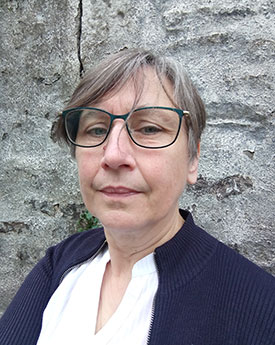
Dr Helen Jones
I am currently working on creative writing approaches to language teaching. I am also interested in cultural responses to the posthuman and reflections on the microscopic (dust). I have past publications on GDR (East German) literature and on women and war in film.

Dr Veronique Lane
Véronique carries out research in the pragmatics of translation, cognitive studies, and medical humanities.
Recent publications include two journal special issues she has edited for L'Esprit Créateur (Johns Hopkins, 2018) and Translation and Literature (Edinburgh UP, 2020).
She has also edited and contributed to the first book on literary back-translation, in collaboration with scholars from the US to the UK, France, Italy, Turkey, and China: her own contributions in the book include a substantial introduction theorizing literary back-translation and delineating its ethical and philosophical implications, as well as a double chapter, "Theorizing Back-Translation: From Antoine Berman on Retranslation to the Three Layers of The Monk" (Edinburgh UP; 2025).
Her second monograph, Literary Translation and Mental health, offers a comparative analysis of the translation processes of seven modernist writers-translators with lived experience of mental ill health - Friedrich Hölderlin, Gérard de Nerval, Virginia Woolf, Marcel Proust, T.S. Eliot, H.D. and Antonin Artaud - and theorizes translation as a powerful form of introspection impacting identity formation and cognition.
Her current research project investigates the therapeutic value of the translation process for NHS patients on the autism-schizophrenia spectrum.

Dr Anna-Sophie Maass
My research is at the intersection of European Studies and International Relations. My research examines EU-Russian diplomatic relations, EU foreign policy towards Armenia, Georgia and Ukraine, energy security, Russian politics, arms control as well as European and transatlantic security and defence policies.
My research is policy oriented as evidenced my my research on added value and effectiveness of EU financial aid to the EU's Neighbouring states for a report commissioned by the European Commission's Directorate general for Economic and Financial Affairs.
I also launched a policy brief series on EU diplomacy and external relations for a consortium on EU foreign affairs funded by the European Cooperation in Science and Technology (COST): https://foreignpolicynewrealities.eu/ which assesses the EU's perception as an actor in international politics. I was the Director of the consortium's early career researchers network running workshops on publication strategies and employability among others.
I am a Fellow of the Higher Education Academy. I am also a member of the British International Studies Association, as well as its working group on European Security. I am also a member of the International Studies Association and the European International Studies Association.
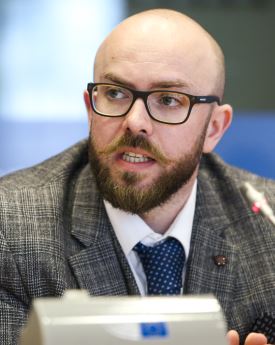
Professor Simon Mabon
My work falls at the intersection of Middle East Studies, International Relations and (International) Polital Theory. I am particularly interested in sovereignty and its discontents, sectarianism, space, and nomos, along with the empirical manifestations of these issues. I am Director of SEPAD, funded by Carnegie Corporation and The Henry Luce Foundation.
Broadly speaking I am interested in the following areas
- Sovereignty
- Saudi-Iranian relations
- Sectarianism
- De-sectarianization
- Nomos
- Order
- The Arab Uprisings
- Religion and politics
- Regime-society relations
- International Political Theory and its application to the Middle East
My research interests are situated at the interplay of sectarianism, sovereignty and regional politics. I have published work that looks at these themes (collectively and individually) in leading Middle East studies and IR journals.
My two most recent monographs looked at the interplay of these issues. The most recent, The Struggle for Supremacy in the Middle East: Saudi Arabia and Iran was published by Cambridge University Press in 2023. The second, Houses built on sand: Violence, sectarianism and revolution in the Middle East was published by Manchester University Press in 2020 and was listed by Choice as an academic book of the year. An open access version is here.
I am currently working on a book for Yale University Press on sectarianism in the Middle East.

Professor Amalendu Misra
My current preoccupation concerns interrogation of violence in the political process. There are three interrelated intellectual queries I am pursuing while using violence as the abiding theme. The first one examines the Politics of Sexual Violence in Armed Conflicts. The second one evaluates the Role of Violence in the Sacred. And the third one explores ways of Managing Violence in Post-Conflict Societies.
My other subsidiary research interests are: ethno-politics; conservative nationalism; religious radicalism; and peace-building in deeply divided societies.
I am the author of six critically acclaimed monographs and written over thirty peer-reviewed journal articles. Several of my works have been translated into Spanish, Portuguese, French, Bhasha Indonesia, Hindi and Marathi.
I have an extensive media footprint: I comment regularly on contemporary interntional politics on Deutsche Welle, France 24, Al Jazeera, TRT World, BBC World Service, LBC, Talk TV, Radio Buenos Aires, Ashraq News, Sansad TV to name a few.
My work has also appeared in Time Magazine, Newsweek, Christian Science Monitor, The Diplomat among other global media outlets.
I speak and write in several European and South Asian languages. At Lancaster, I have sole supervised 10 PhD students to completion and welcome potential applicants.

Dr Alexis Moraitis
The main focus of my research is the global political economy of capitalist governance. It seeks to understand the nature and limits of the capitalist state, how states shape the trajectory of capitalist development and what are the constraints of their political powers. What interests me is, therefore, the foundational political economy question of the relationship between political authority and global markets. I explore how this relationship has been theorised over time by both liberal and critical perspectives and how it has evolved in practice in the context of 21st century developments. Across my different projects, there is also a persistent concern with the political economy of crisis and its various manifestations. I seek to understand the relationship between capitalism and contemporary environmental, economic and social disasters, how crisis is managed by states and how we can develop a critical theory of crisis adequate to cotemporary challenges. More broadly, my research engages with questions of change and continuity in capitalism. In particular, I am interested in how long-run economic tendencies such as post-industrial transformations, economic stagnation and automation, are reshaping the trajectory of capitalist growth. I aim to theorise how to grapple simultaneously with the accelerating changes in and enduring continuities of contemporary capitalism, while understanding their implications for post-capitalist futures. In parallel, I also research the political economy of French capitalism and the transformations of state policy since the 1980s.
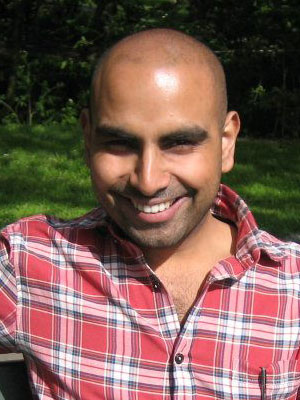
Dr Kunal Mukherjee
Kunal's research interests revolve primarily around Asian Politics, Asian Security, with a focus on both South Asia (especially India) as well as East Asia (especially China).
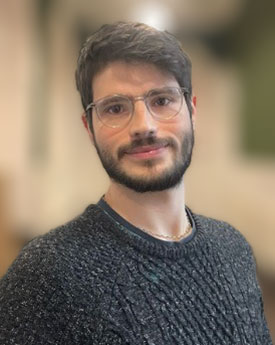
David Murphy
My current research focuses on how queering and queer IR theory interacts with notions of international queer solidarity, and how this can queer our notions of international solidarity. I am currently looking at what a queer British response to queerphobia in Uganda, with a particular focus on the Ugandan Anti-Homosexuality Acts (2014 and 2023), might look like.
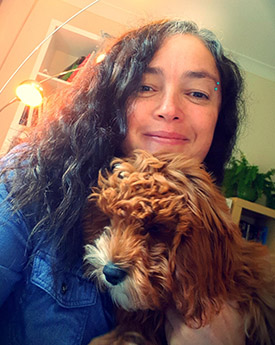
Professor Patricia Murrieta-Flores
I’m very interested in interdisciplinary research, particularly looking at the intersections between Humanities and all sorts of technology. In collaboration with scholars in Computer Science, History, Archaeology, Geography, Natural Sciences, Literature, Linguists, Media, and Sociology, I’m currently working in a diverse range of topics that include:
- The use of Machine Learning to carry out the automated transcription of large collections of Spanish American 16th and 17th century colonial documents.
- Development of Natural Language Processing approaches for the annotation of thousands of documents related to the history of New Spain.
- The history of disease and epidemics during the Conquest of America and the colonial period in Mexico.
- Historical archaeology of plants, remedies, and diseases of early Colonial Mexico.
- The social and economic history of the Fleets of New Spain from the 16th to the 18th centuries.
See my publications:
https://lancaster.academia.edu/PatriciaMurrietaFlores

Dr Shuruq Naguib
I received my PhD in Islamic Studies from the University of Manchester, Department of Middle Eastern Studies. My research covers two key strands: the classical and pre-modern intellectual and textual traditions, particularly Qur’an hermeneutics and ritual law; and Muslim responses to modernity, with a focus on how twentieth century and contemporary Muslim women scholars read the tradition to intellectually and socially develop their religious authority as knowers of the tradition. I have written on ritual purity, metaphor in post-classical Qur’an interpretation and Arabic rhetoric, feminist hermeneutics of the Qur’an, and contemporary female exegetes and jurists in Islam. In recent years, I have developed an interest in Islam in Britain, co-authoring a study of change in conceptions of God in modern Britain and leading a research project entitled Muslim Women Reading Religious Texts in Britain and Egypt (2010-2011). The project investigated how core Islamic texts are read by ‘ordinary’ Muslim women in light of their contexts. I have also been involved in supporting Islamic studies in the UK through my work with HEFCE's Islamic Studies Network until 2012, and currently through my capacity as interim Co-chair of the British Association of Islamic Studies (BRAIS).
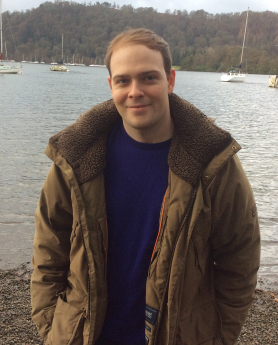
Dr Samuel O'Donoghue
I am cultural historian and scholar of contemporary peninsular Spanish literature, with particular interests in the Franco dictatorship and the Holocaust. My research spans the fields of comparative literature, collective memory, analytic philosophy, and the medical humanities. My current work is focused on two areas of Spanish memory studies: first, the emergence of collective memories of the Holocaust and their role in shaping dissident artistic practices during the Franco dictatorship; second, the genealogy of perpetrator narratives of the Spanish Civil War.

Dr Emmanuel Ossai
religion; conflict; peace; politics; peacebuilding; colonialism; legitimacy; Nigeria; African security; African diaspora; indigenous religion, culture, and thought; the Global South.

Professor Christopher Partridge
Christopher Partridge's research focuses on cultural history and theory. He is particularly interested in drug cultures, popular music, countercultures, and Western occult thought. He established and now co-edits the series Studies in Religion and Popular Music (Bloomsbury) and co-edits Studies in Popular Music (Equinox).

Professor Corinna Peniston-Bird
Corinna Peniston-Bird's research on the cultural circuit examines the relationship between lived experiences, memory, and cultural representation. She has a particular interest in femininities and masculinities at war, particularly the British experiences of the First and Second World Wars. She is currently working on gendered commemoration, with a particular focus on British war memorials. Her interest in untraditional source materials is reflected in jointly edited collections with Dr Sarah Barber entitled History Beyond the Text: A Guide to the Use of Non-Traditional Sources by Historians (London: Routledge, 2008) and Approaching Historical Sources in their Contexts: Space, Time and Performance (London, 2020) which introduce research students and colleagues to methodologies and theories of how to engage with sources ranging from the visual and material (monuments, photographs, film) to the oral (personal testimony), to the material (albums, buildings, cemeteries...).

Dr Costanza Porro
My research interests are at the intersection between political, moral, legal and feminist philosophy. My primary focus is on the concept of equality, and I have written on why we should treat each other as equals and what it means to do so, paying particular attention to the status of those who are punished for a criminal offence. More recently, I have addressed these questions from a feminist perspective, looking at the role of our vulnerability and our nature as needy and caring beings in our thinking on equality and rights. My current research explores the role of care in a society of equals.

Professor Chakravarthi Ram-Prasad
Comparative philosophy, especially phenomenology, epistemology, metaphysics and theories of consciousness; comparative studies of India and China; classical Indian thought; history of Hinduism; Hindu theology; contemporary Indian politics and religion; multiculturalism and British society; comparative political philosophy

Cyrille Rollet
I am interested in the study of media and comparing the wording and the analysis of events according to various sources of media, particularly regarding sporting events.
I have given many public talks about sports and sports events or personalities in France, or in the Francophone world.

Janet Smith
I am working on the intersection of philosophy, mystical theology and existentialist theology. I am arguing for a Christian non-dualistic image of the Divine, investigating what this might mean regarding the self, its relation to the world and contemporary spirituality.

Dr Emily Spiers
Emily Spiers is Senior Lecturer in Creative Futures and German. Their work focuses on narrative as a tool for Futures Literacy, as well as future-oriented, innovative trends in communicative, socio-digital and literary practices. They explore how futures are being envisaged, anticipated and made through art and literature -- and how creative narratives can help articulate multiple futures in fields as diverse as defence, education and climate-change research.
Their research into authorship focuses on spoken-word poetry as an aesthetic, socio-digital and political practice, and as a world literary phenomenon. Underpinning their work is the question of how, through the presence of the author-performer, performance poetry foregrounds the question of agency in relation to literature: the active shaping of a world in time that literature carries out.
Find out about FLiNT
Visit my page on Academia.edu.
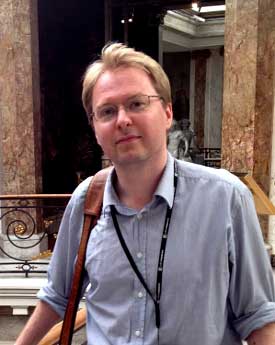
Dr Martin Steven
My research interests lie in the area of European Union politics - especially political parties, elections and the European Parliament. I have published in journals such as 'Representation', 'The Political Quarterly', and the 'Australian Journal of Political Science', as well as single authored monographs for Routledge and Manchester University Press. My recent focus has been on the European Conservatives and Reformists (ECR) party and their 'Euro-realist' politics.
I am the Academic Co-ordinator of 'Jean Monnet at Lancaster' (www.lancaster.ac.uk/eustudies), a European Commission funded project (€44,335.50) designed to promote and explain the work of the European Union through coordinating research seminars, lectures and policy workshops.
Related to this, I am the founding convener of the European Parliament Academic Research Network involving members of UACES. A special issue of the Journal of Legislative Studies has been published in 2025 looking at the ninth session of the European Parliament, which I edited, along with an accompanying Routledge book.
I am also an associated researcher at the Institute for European Studies, Universite libre de Bruxelles (ULB): Institute for European Studies, ULB. I recently finished working on an international research project examining the role of social, moral and religious issues in the activities of Members of the European Parliament, MEPs (with Professor François Foret, ULB Bruxelles) the findings of which were published in a special issue of Religion, State and Society and a Routledge edited volume.
I am currently co-authoring a paper with Emanuele Massetti (University of Trento) examining the European Conservatives and Reformists under the leadership of Brothers of Italy (FdI), as well as an article on the European Parliament for the Journal of Common Market Studies Annual Review of the European Union.

Professor Alison Stone
Alison’s main research interests are in:
History of Philosophy, especially women in nineteenth-century philosophy
Feminist philosophy
Post-Kantian continental philosophy
Aesthetics

Professor Deborah Sutton
My research interests lie within the cultural and political history of modern South Asia. For details of my current research see my research webpage: The Hindu Temple and Modernity. I am also very interested in the practises through which monuments in India are selected, conserved and inhabited; a project which emerged from my photographic work at the Kalkaji Mandir in Okhla.

Professor Naomi Tadmor
My broad and interdisciplinary research interests include British social and cultural Hisory and modern Jewish history.

Dr Amit Thakkar
I research Spanish and Latin American film and literature. My principal current interest is 'cine de choque', a term I have developed for the analysis of films by Spanish-speaking film directors in which car crashes feature. I have written two articles and I’m now preparing a monograph on this subject. I have co-edited a special issue and published articles on the relationship between masculinities and violence in Latin American film and literature. I have published two articles, a book chapter and a book on the fiction of the Mexican author Juan Rulfo.

Dr Nicola Thomas
I am interested in cultural ways of knowing space, time and the environment, across languages. My current research covers two main areas.
First, I am interested in questions of time and the environment. This emerged from my work on 'Anthropocene Lateness' in the poetry of Austrian poet Friederike Mayröcker. In 2019, I cofounded the British Academy-funded Anthropocene Times research network with Dr Blake Ewing (University of Nottingham), and ran a small research project on how we use creativity to navigate time in the Anthropocene. In 2023-26, Dr Ewing and I are leading a British Academy Knowledge Frontiers International Interdisciplinary research project on 'Wetland Times', comparing time language and concepts across three global wetland landscapes.
My previous research focused on English and German-language poets of the twentieth and twenty-first centuries, including Paul Celan, J. H. Prynne, Ulrike Almut Sandig, Edwin Morgan and Friederike Mayröcker. My first monograph, Space, Place and Poetry in English and German, 1960-1975 (Palgrave, 2018), looked at engagements with place and landscape in the work of a range of writers working in the twentieth-century, at a moment of rapid transformation in thinking about space and spatiality. I argued that writers in these two quite different traditions were working through similar issues of disrupted spatiality and, in so doing, were also radically reimagining the European lyric in ways that only a comparative reading could bring properly into focus.
Together with Jana Maria Weiss and Alexander Kappe, I am a co-editor of the landmark anthology The Opposite of Seduction: New Poetry in German (Shearsman, 2025) - the first major anthology of contemporary German-language poetry in English for more than 40 years, bringing together more than hundred poems by more than sixty poets and translators. This project was awarded an English PEN prize and is supported by the German Translators' Fund.
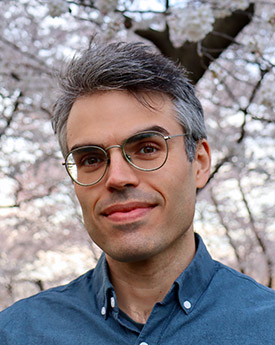
Dr Jeffrey Whyte
Jeff works in the area critical military and security studies with a background in political geography. His work focuses on the signifiance of information, knowledge and communication in war, notably the political history of psychological warfare and its contemporary expression in modes of cyberwarfare and security.

Professor Stephen Wilkinson
Stephen Wilkinson is Distinguished Professor of Bioethics at Lancaster University. Much of his work is about reproductive ethics and the regulation of reproductive technologies, especially the ethics of selective reproduction (practices that involve choosing between different possible future people). A book on this topic (Choosing Tomorrow’s Children, Oxford University Press) was published in 2010, supported by grants from the AHRC and Wellcome. Since then, particular interests have included ethical issues raised by uterus transplantation; non-invasive pre-natal testing; mitochondrial replacement; new sources of eggs, embryos, and sperm; genome editing; surrogacy; and public funding for infertility treatments. Another abiding interest is the commercial exploitation of the human body, which was the subject of his first book, Bodies for Sale (Routledge, 2003).
From 2013 to 2021, Stephen was the joint leader (with Prof Rosamund Scott) of a large Wellcome-funded research programme about the Ethics and Regulation of Human Reproductive Donation. He is currently leading another large Wellcome project called The Future of Human Reproduction: transformative agendas and methods for the Humanities and Social Sciences, a collaboration with colleagues from Design, English Literature, Law, Linguistics, Philosophy, Psychology, and Sociology. He has previously held research grants from the AHRB, AHRC, British Academy, and Leverhulme Trust.
In 2024, Stephen was appointed as a Council member on the Nuffield Council on Bioethics. He also served on the Council's Expert Working Group on stem cell-based embryo models, which reported in November 2024.
He is a member of the AHRC Peer Review College, the UKRI Talent Peer Review College, and the editorial boards of Bioethics, Clinical Ethics, and Res Publica.
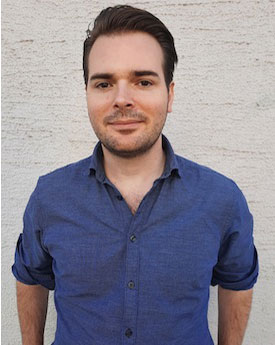
Dr Bastiaan Willems
My research combines themes of war, genocide, and forced migration, and particularly focuses on the Nazi era. My doctoral research examined the German retreat onto its own territory following years of brutalised fighting on the Eastern Front, and asked if the Wehrmacht’s behavioural patterns, taught during the fighting in the Soviet Union, could also be observed during the final battles in Germany. This led to my first monograph, Violence in Defeat: The Wehrmacht on German Soil, 1944-1945 (Cambridge University Press, 2021). At the same time, I looked at the flight and expulsion of East Prussians from their province in the years 1944-1948, which, beyond a number of articles, has led to the co-edited volume (with Michal Palacz) A Transnational History of Forced Migrants in Europe: Unwilling Nomads in the Age of the Two World Wars (Bloomsbury Academic, 2022). I am associate editor of the Journal of Slavic Military Studies and served as historical consultant.

Dr Garrath Williams
I have wide interests in moral philosophy, political theory, and applied ethics. In recent years, I have focussed on Kantian approaches to moral and political questions. As part of our current AHRC-funded project, I have published a short book, Kant Incorporated, as well as several articles on Kant's practical philosophy. For 2025-26, I am working on a Kantian approach to markets and transnational business as a Visiting Professor at the University of Toronto. This work has been inspired by earlier EU-funded work on children, health and public policy, and I continue to write about food systems and broader questions about responsibility in applied ethics.

Dr Stephanie Wright
I am a historian of modern Spain, specialising in the histories of disability, psychiatry, sexuality, and gender under the Francoist dictatorship. I am currently writing a book on the experiences of maimed Francoist veterans of the Spanish Civil War, while starting a new research project exploring sexual violence under Francoism. The latter centres on the role of forensic doctors and psychiatrists within court cases dealing with sexual crimes in twentieth-century Spain.
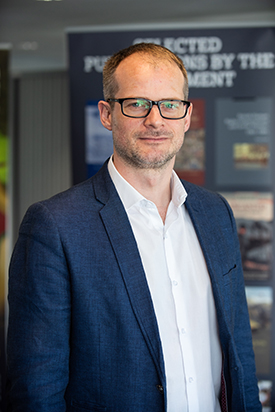
Professor Marco Wyss
My research focuses predominantly on the international history of the Cold War. While the initial focus was on the role of neutrality and Britain in the East-West struggle, I am currently working on the Cold War in the so-called Third World, specifically in Sub-Saharan Africa and in relation to Britain's and France's postcolonial security roles in this region. Meanwhile, I have also carried out research on peacekeeping in Africa, and the transformation of European armed forces since the end of the Cold War. Prior to moving into and beyond the Cold War, I carried out research on volunteers in the Waffen-SS.

